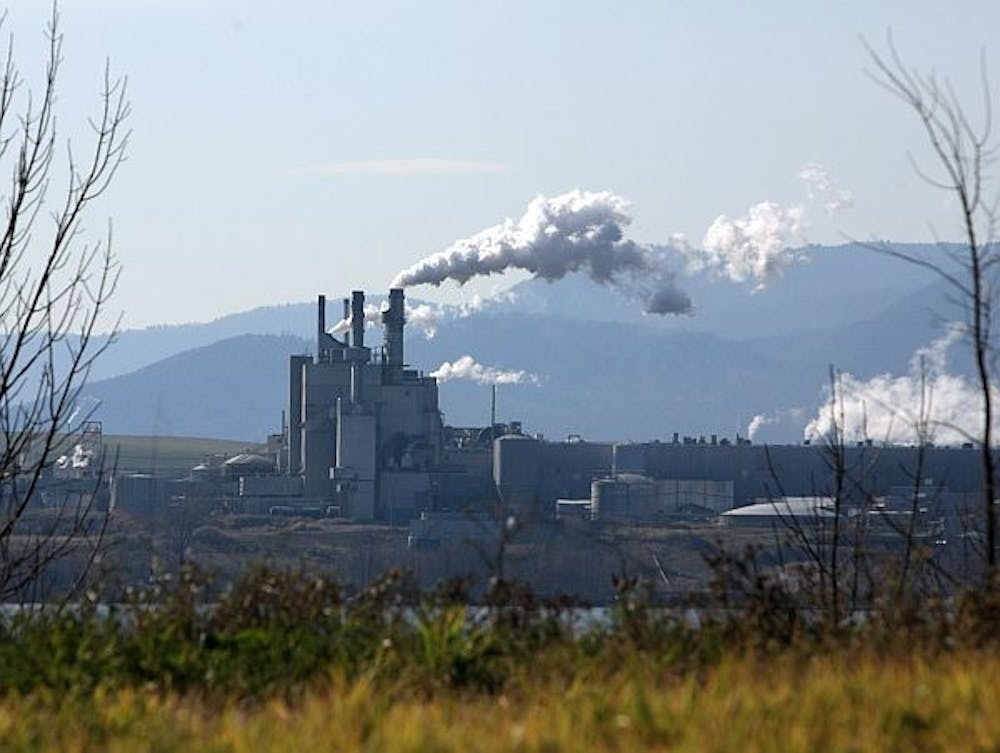Vermont Gas Systems (VTGas) and International Paper, a company whose mill sits on the banks of Lake Champlain, have come to an agreement this month and plans are being presented to legislators regarding the construction of a pipeline across the lake. The proposed pipeline will run from Addison County to Ticonderoga, allowing the International Paper mill to switch from fuel oil to natural gas. This change would reduce fuel costs and reduce greenhouse gas emissions.
An important factor for the pipeline installation is that the lake is held in public trust. This means that technically the lake is a resource owned by everyone, making the addition of a pipeline through the bottom of the lake complicated from a policy point of view.
In an interview with Vermont Public Radio (VPR), David Deen, who chairs the House Fish, Wildlife and Water Resources Committee in Vermont explained the complications of the body of water being in public trust.
“The use of a public trust resource is in the hands of the representatives of the people,” said Deen. “And in that case, we had to approve Burlington using that filled land, because the bottom of the lake is impressed with the public trust. It’s a public resource.”
VTGas proposes laying the pipeline under Lake Champlain using directional drilling, a method that allows the pipes to cross the lake without disturbing the bottom. Wenbo Zhang ’13, studies environmental policy at the College and acknowledges the potential negative effects a pipeline would have.
“On the one hand, building an under-water pipeline inevitably generates some sort of disturbance to the lake ecosystem,” said Zhang. “The long-term risk of the project is a potential leakage of the pipeline, which may cause a large-scale contamination of the lake.”
The potential danger of the situation seems to be outweighed by its long-term benefits, however. The pipeline under Lake Champlain and its extension through Addison County would be ecologically beneficial in many ways; Donna Wadsworth, International Paper spokeswoman, said in an interview with VTdigger that the pipeline is “an opportunity to reduce greenhouse gas emissions by approximately 26 percent.”
Zhang also went on to acknowledge these possible benefits.
“The natural gas will be replacing oil, which means that in the long term, less greenhouse gases will be emitted,” she said. “Because it will be constructed on public land, Vermont residents should all have a say in the decision-making process. It is important to inform the public of the pros and cons of the construction, so that they can provide their representatives with an educated yes or no.”
Beyond public participation in the approval of this project, the pipeline would not be solely for International Paper’s use — this project intends to allow VTGas to upgrade their southern gas line into Rutland County, including Middlebury itself. International Paper has agreed to pay in full the $70 million the project will cost, and none of the residents tax dollars will go to it.
The proposed International Paper conduit “will support a larger and longer pipeline network, at no additional cost to our customers, and will help us achieve our goal of bringing natural gas serve to more Vermonters,” VTGas President and CEO Don Gilbert said in a press release.
Lynn Coale, a resident of Weybridge and executive director of the Hannaford Career Center in Middlebury, thinks the extension of the pipeline will be very beneficial for Middlebury. He sees natural gas as good from ecological and economic perspectives, as it burns more cleanly than fuel oil and is abundant and cheap, although not a renewable source.
“As an example,” Coale explained, “We were looking at putting a thousand gallon fuel tank on our campus but put the plan on hold in anticipation of the natural gas coming.”
On a more personal level, right now Coale uses a combination of fuel sources to heat his home, just a stone’s throw from the College. Aside from wood, the family also burns fuel oil to heat their home. When asked if he would take advantage of the new pipelines in Middlebury to purchase natural gas for their home, Coale replied with an enthusiastic “Oh absolutely!”
Coale is a supporter of natural gas on a national level as well, believing that “natural gas is a clean and efficient fuel that will quickly catapult the U.S. to energy independence. It’s not renewable and we’d need to feed pipelines into different states, but it’s abundant and can be produced fairly safely.”
On a local level, Coale expresses his relative confusion and concern over the placement of a pipeline across the bottom of Lake Champlain, and hopes that VTGas and the builders will communicate the full extent of the project to the public.
If approved by state regulators, the pipeline should begin servicing International Paper by 2015. More information on the costs, benefits and complications in building on land put in the public trust will come to light over the following months as VTGas, International Paper and Vermont state legislators make progress on this issue.
VTGas Plans to Construct Pipeline

Comments



